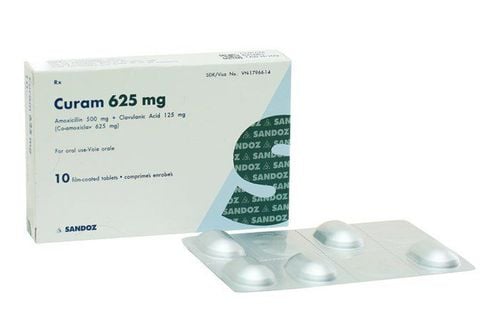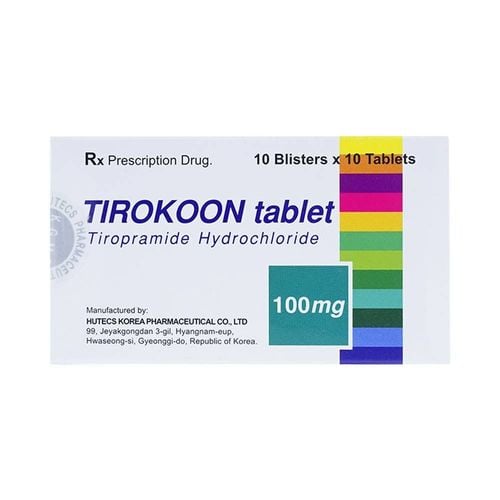This is an automatically translated article.
The article was professionally consulted with Specialist Doctor I Nguyen Hung - Doctor of Endocrinology - Department of Medical Examination & Internal Medicine - Vinmec Danang International General Hospital.Blood in the urine is a symptom of a variety of dangerous diseases, including cancer. Therefore, when detecting symptoms of blood in the urine, the patient should not ignore this symptom but should go to the doctor as soon as possible for timely diagnosis and treatment, to avoid dangerous complications.
1. What is bloody urine?
Urinating is a normal and necessary excretory activity according to the body's needs. The amount of urine and the color of urine that we excrete out every day often reflect our health status. Normally urine will be straw yellow when you drink little water or clear when you drink a lot of water. However, when urinating blood , indicates that your body may be experiencing a medical condition.Blood in the urine means that the urine has red blood cells, the urine is red, pink, or there are small threads of blood mixed in the urine. Along with that, when urinating, you may have a burning, burning sensation,...
Blood in urine usually has 2 main types:
Gross blood in urine: This is a condition that the patient can see. The color change of urine can be clearly seen with the naked eye. Urine may be red, pink, or have blood in it. Microscopic hematuria: This is a condition in which the urine is mixed with blood but the patient cannot see it with the naked eye, due to too few red blood cells. In the case of blood in the urine that only appears for a few days and goes away, there is usually no need for treatment. However, if you urinate blood for a long time, this is a warning sign that your body is experiencing some disease. Therefore, you need to visit a doctor early to find out the cause of this condition and treat it promptly to avoid unwanted complications.

2. Causes of bloody urine
Some causes below often cause you to urinate blood:Urinary tract infection: This disease occurs more often in women than in men with symptoms such as bloody urination, burning urination, watery urine. urine has a bad smell; back and side pain; a feeling of wanting to urinate right away with a constant frequency; pain or burning in the urethra when urinating; The urine is cloudy and has a strong odor. In men, there may be painful urination with pus.
Kidney infection: When bacteria persist for too long in the urinary tract and bladder, bacteria can travel through the bloodstream to the kidneys or ureters, thus causing nephritis, pyelonephritis. kidney causes the patient to have symptoms such as blood in the urine, frequent urination; accompanied by fever, chills, or low back pain; nausea, vomiting.
Kidney or bladder stones: The cause is when the patient holds urine for too long, the residues in the urine will settle and form solid crystals, then turn into hard stones in the bladder and kidneys. cause cystitis and pyelonephritis. Symptoms of kidney stones or bladder stones such as urinary retention, difficulty urinating, blood in the urine and pain in the kidney area.
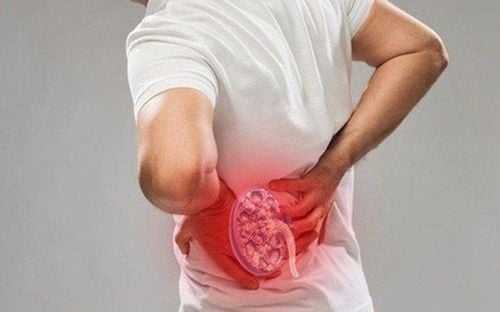
Post-exercise hematuria: This condition occurs when a person exercises with intensity. Besides, not properly rehydrating during exercise can also increase the risk of hematuria.
Prostate enlargement, prostatitis: The prostate gland is often overgrown when entering middle age, the enlarged prostate presses on the urethra, obstructing the flow of urine, making it difficult for the patient to urinate. , painful urination and bleeding; urinating many times a day, especially at night; After urinating, still feel the need to urinate; Sudden urinary retention despite pushing hard causes tension in the lower abdomen.
Catheterization: Some people may have difficulty urinating due to injury, surgery, or illness. So a urinary catheter is placed in the bladder to help circulate urine out. Urinary catheters can allow bacteria to enter the urethra, leading to a urinary tract infection that causes blood in the urine.
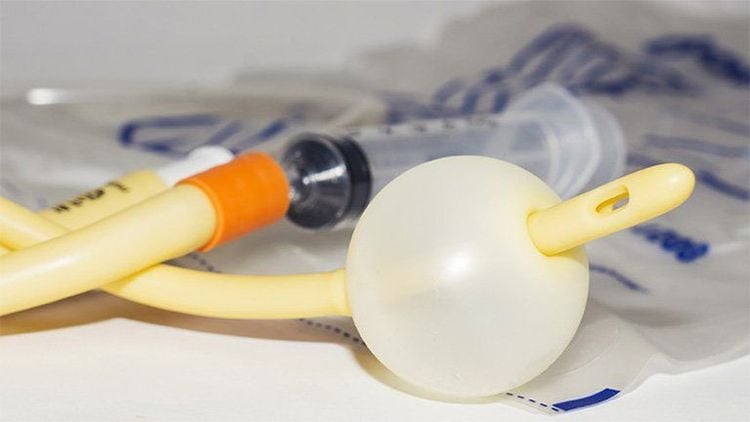
Cancer: Prostate cancer, bladder cancer often has signs and symptoms such as dull pain in the pelvis; pain in the lower back, hips, or upper thighs; pain during ejaculation; blood in semen; weight loss, bone pain,...
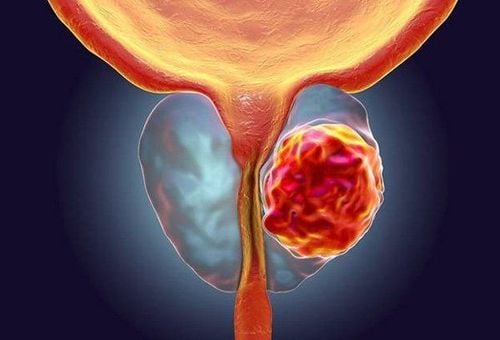
3. Treatment of bloody urine
The treatment for blood in the urine depends on the cause of the disease. Your doctor can help ease your symptoms by prescribing antibiotics to clear your urinary tract. In severe cases, the doctor will prescribe surgical intervention.If the cause is kidney or bladder stones, the doctor may prescribe a combination of drugs that require drinking plenty of water every day (at least 2.5 liters of water) and exercising to push the stones out (in case of kidney stones). small stones) in the urine stream. In cases of large stones, you may need shock wave intervention to dissolve the stone.
For patients with blood in the urine due to cancer, it is necessary to have the examination and treatment of an oncologist. The treatment method at this time will be to treat cancer with measures such as drugs, radiation, chemotherapy or surgery.
In order to effectively treat hematuria, patients must strictly follow the doctor's instructions in taking drugs, taking care of themselves, especially not arbitrarily using drugs or stopping suddenly. suddenly. Because doing this can make bacteria resistant to the drug, leading to a chronic disease that is not completely cured.

Please dial HOTLINE for more information or register for an appointment HERE. Download MyVinmec app to make appointments faster and to manage your bookings easily.
Recommended video:
Treatment and prevention of urinary tract disorders






